Maximizing Your Home’s ROI: Smart Improvement Choices
Maximizing Your Home’s ROI: Smart Improvement Choices
Deciding which home improvements to make isn’t always just about return on investment (ROI). If you’re upgrading your home to enhance your own living experience, it’s difficult to quantify that value. However, if your goal is strictly resale, it’s essential to evaluate your choices carefully. There’s a lot of misleading information out there—from HGTV shows suggesting things like “This kitchen cost $20K, and the seller got back $40K when they sold” to social media claims that a new garage door can bring a 194% ROI or a new front door brings 188% ROI. These figures are misleading and often overlook crucial variables. To help you make informed decisions, we’re offering some expert insight.
Prioritize Routine Maintenance
The best way to protect and enhance your home’s value is by staying on top of routine maintenance. Not only does this bring peace of mind while you live there, but it also prevents buyers from significantly discounting their offers due to perceived neglect. If you’ve maintained some aspects of your home but ignored others, buyers may assume the worst and believe there are other surprises awaiting them, which they will factor into their offer price. If you’re handy and can handle basic maintenance and upgrades yourself, your sweat equity will give you the best chance at a positive ROI.
Manage Your Expectations
Most renovations don’t yield a positive ROI if you plan to sell immediately unless you’re going from zero renovations to 100% (more on that later). If you’re planning to sell soon after a major remodel, it’s best to keep expectations in check. The key is to make your home as functional and appealing as possible for you and your family while maintaining realistic financial expectations. Renovations differ from maintenance—if something is broken, it should be repaired or replaced before selling as a general rule.
Avoid Partial Upgrades
If your home hasn’t been updated in decades, doing one-off renovations—like upgrading a single bathroom or installing a brand-new front door—won’t necessarily translate into a higher sale price, at least not enough to cover what you just spent. Buyers typically fall into two categories: those looking for a complete renovation project at a bargain price or those willing to pay a premium for a fully updated home. Partial upgrades often fail to deliver a strong ROI because they leave lingering work for the next owner.
A home that is 100% move-in ready will attract the highest offers. Buyers will pay a premium if they feel like everything is complete (maintenance) and up to current aesthetic standards. However, once updates fall below that threshold, buyers hesitate to pay a premium. Once you go below 100% and there are still some updates or projects left to do, you lose the ROI.
Think of it like buying a car—new vehicles lose value the moment they leave the lot. Similarly, buyers often pay 20%-25% more for a brand-new home versus a resale home, reinforcing the importance of a fully updated property.
The Power of Paint
If there’s one cost-effective upgrade that offers a strong impact, it’s a fresh coat of paint. However, color choice matters significantly. The wrong shade can turn buyers away, so it’s wise to consult an experienced Realtor or designer before making a final decision. Fresh paint in the wrong color can result in a negative ROI.
Final Thoughts
Before making any major home improvements, consider whether they align with your long-term goals. If you plan to sell soon, focus on maintenance, full-scale updates rather than partial ones, and simple yet impactful changes like painting. Always consult professionals to ensure you’re making the best choices for maximum ROI.
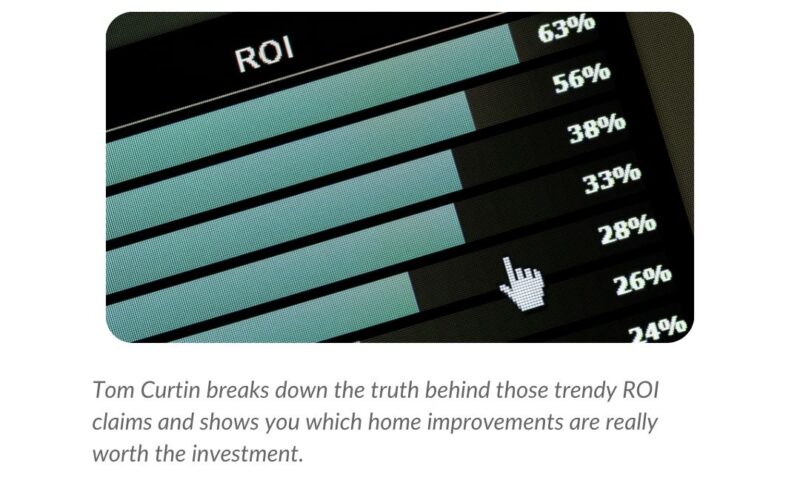
Elevate Your New Year’s Resolutions for 2025
‘Tis the season for New Year’s resolutions! Joanne and I began our New Year’s Day by reflecting on the past year and setting intentions for 2025. I wanted to share some strategies and questions to make your goal-setting process more meaningful. Before diving into the details, let’s explore a few methods to ensure your resolutions truly stick.
Proven Strategies for Goal-Setting Success
Did you know that writing your goals down can increase your chances of achieving them by 40% to 50%? There’s something powerful about putting pen to paper—it engages your subconscious mind and helps clarify what you genuinely want. Typing on your phone or computer just isn’t the same! Once you’ve written your goals, share them with someone who can hold you accountable. Talking about your plans with a trusted friend or partner makes it much more likely you’ll follow through, especially if they check in on your progress.
Now that you’re ready to write down your goals and share them, there’s an important first step to take: reflection. It’s a step many of us skip, but it’s essential for setting intentions that truly matter.
A Crucial First Step: Reflect on the Past
Before you start setting goals, take some time to reflect on 2024. This step not only helps you identify areas for growth but also allows you to build on the successes and lessons of the past year. Joanne and I started our reflection with these two simple but impactful questions:
1. What brought you joy in 2024? Take a positive approach by recalling the moments and people that made you happy. Looking through the photos on your phone can help jog your memory and remind you of what you’d like to continue or expand in 2025.
2. What were your biggest challenges in 2024, and what did you learn from them? Reflecting on difficulties can reveal your resilience and highlight valuable lessons. Recognizing your growth can inspire you to set ambitious but achievable goals for the year ahead.
A Look Further Back: Your Biggest Memory of 2023
Here’s a fun challenge: try to recall your most significant memory from 2023. It’s surprising how quickly memories fade! Reflecting on this can help you focus on what truly matters for 2025. Before you start scrolling through old photos, take a moment to see what comes to mind naturally—it’s a great way to gauge what made the biggest impact on you.
Clarifying Your Vision for 2025
Once you’ve reflected on the past, it’s time to look ahead. Start by asking yourself a few key questions:
* What problems do you most want to solve? Identify small, actionable habits to address these problems. For example, if you want to stop snacking late at night, consider setting an alarm as a reminder or replacing the habit with something positive, like reading a book upstairs away from the kitchen.
* What discipline do you need support with?
* Which relationships need your focus in 2025?
Finally, take a moment to imagine your perfect day in 2025. Create two versions: one for a weekday and one for a weekend. Be realistic—your perfect day should reflect your current responsibilities and lifestyle. For instance, if driving your daughter to school is part of your routine, include that in your weekday scenario. Add as much detail as possible, from the time you wake up to when you go to bed.
Turning Reflection into Action
After answering these questions, you’ll have a clearer picture of what you want to achieve. Writing out your goals in specific categories can be helpful—think financial, business, personal, relationships, spiritual, and health. But remember, goals don’t have to be long lists of bullet points. Lately, Joanne and I have focused on setting goals that bring us joy and bring us closer to living our perfect day more often.
As a couple, supporting each other’s aspirations has deepened our connection. Helping Joanne achieve her goals brings me happiness, and together, we prioritize who we’re becoming, not just what we’re accomplishing.
Make 2025 Your Best Year Yet
The start of a new year is a chance to reflect, dream, and take action. Whether you’re tackling big goals or small habits, I hope these strategies help you approach 2025 with clarity and purpose. Here’s to a year filled with growth, joy, and meaningful progress!

Agent Spotlight Interview – Eveline Matthaeus
In this Agent Spotlight video, we introduce Eveline Matthaeus, a dedicated buyer’s agent on the Curtin Team. Eveline brings a wealth of professional expertise to our team, with a background in marketing from Unilever and management advisory from Andersen Consulting. Her unique specialization in assisting expats stems from her personal experience of relocating her family from Switzerland, giving her invaluable insights into the challenges and stresses associated with such moves.
Fluent in four languages, Eveline excels at connecting with people from diverse backgrounds. Her love for data analytics, paired with her honed negotiation skills, provides her clients with a strategic advantage in the competitive real estate market.
Having embraced Georgia and its warm Southern hospitality, Eveline enjoys exploring the area with her husband Marc and their three kids, often accompanied by their beloved rescue dog, Youpi. Whether she’s leading them on adventurous hikes or diligently maintaining her backyard oasis, Eveline brings passion and dedication to every aspect of her life.
Don’t forget to like, comment, and subscribe to the Curtin Team channel to stay updated on more enriching content like this!
WATCH THE FULL EPISODE HERE

Agent Spotlight Interview – Heather Woodruff
In this Agent Spotlight video meet Heather Woodruff, a dedicated buyer’s agent on the Curtin Team. Originally from Boston, Heather made the exciting move to Georgia with her family, bringing her extensive real estate experience from the Boston market to the vibrant communities of Alpharetta, Roswell, and East Cobb.
Heather shares her journey of restarting her business in Georgia and the joy she finds in exploring her new surroundings. The move has brought her closer to extended family, and she loves the friendly atmosphere and beautiful spring weather of the South.
Before embarking on her real estate career, Heather was a pediatric physical therapist. Her passion for helping others seamlessly transitioned into real estate when she sold her own home and fell in love with the process. This inspired her to make a significant career change and become a realtor.
Heather holds several special designations in real estate, including being an Accredited Buyer’s Representative (ABR), Seniors Real Estate Specialist (SRES), Real Estate Collaboration Specialist in Divorce (RCS-D), and certified Real Estate Negotiation Expert (RENE). Her genuine love for getting to know people and her attentive listening skills make her an exceptional agent who truly cares about her clients’ needs.
Don’t forget to like, comment, and subscribe to the Curtin Team channel to stay updated on more enriching content like this!
WATCH THE FULL EPISODE HERE
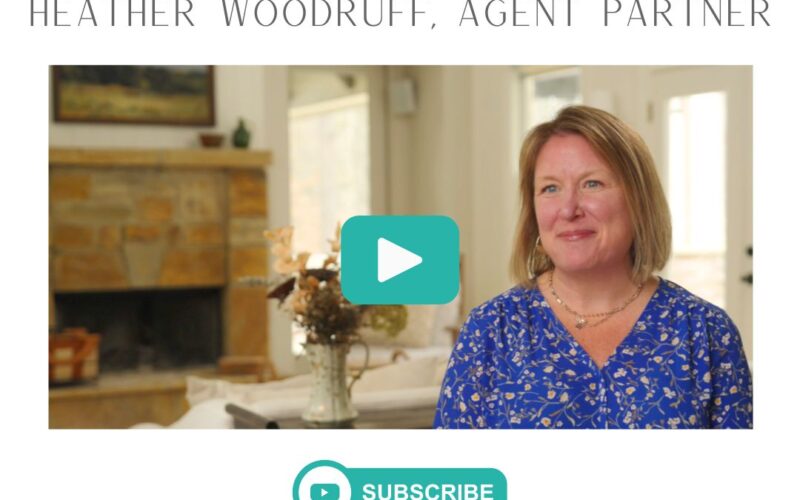
Navigating the North Atlanta Real Estate Market: A Comprehensive Guide for First-Time Investors
In recent years, one term has dominated economic discussions: INFLATION. A recent survey revealed that 82% of respondents feel the impact of inflation on their household budgets. I want you to consider how investing in the North Atlanta real estate market can be a strategic response to inflationary pressures, especially for first-time investors.
The North Atlanta Real Estate Market in Numbers
Let’s start by looking at the average sales price increases over the past year in key North Atlanta cities:
Milton: From $1,001,114 in 2022 to $1,071,125 in 2023 (an increase of $70,011)
Alpharetta: From $590,609 to $643,293 (an increase of $52,684)
Roswell: From $554,821 to $598,375 (an increase of $43,554)
Woodstock: From $420,110 to $441,110 (an increase of $20,924)
This translates to an average annual increase of 7.3%.
Real Estate as a Hedge Against Inflation
So, how does real estate investment counter inflation? Here are three key ways:
• Rising Rents, Fixed Mortgages: As inflation rises, so do rental prices, while your mortgage rate stays the same. This means your return on investment increases with every rent hike.
• Paying Less Over Time: Inflation devalues future dollars. Since your mortgage payments are fixed, you effectively pay back less over time in real terms.
• Property Value Growth: Inflation typically drives up property values, enhancing the worth of your investment without increasing your mortgage debt.
Beyond Inflation: The Four Pillars of Real Estate Investment
Besides being one of the best hedges against inflation, real estate offers 4 other key benefits. Leverage, passive income, appreciation and tax write-offs.
• Leverage: Use loans from banks or mortgage companies to amplify your investment power.
• Passive Income: Rental income helps pay off your mortgage, building equity in your property.
• Appreciation: Property values tend to increase over time, boosting the worth of your investment.
• Tax Advantages: Benefits like depreciation deductions can reduce your taxable income.
Understanding Return on Investment (ROI)
Consider you buy a property for $100,000 with a 20% down payment ($20,000). If the property appreciates by 5%:
Gain: 5% of $100,000 = $5,000
ROI: $5,000 is 25% of your $20,000 investment
In comparison, to match this in a mutual fund at 10% yield, you’d need a $250,000 investment.
Getting Started in Real Estate Investment
Hopefully I’ve convinced you to at least consider the idea of investing in real estate now. So where do you start? The first step is to define, with as much detail as you can, the criteria of the investment property. Consulting with a Realtor who has experience with investment property can help you gain clarity around what makes a good investment.
• Define Your Criteria: Detail the characteristics of your desired investment property – location, size, age, HOA presence, condition, and price range.
• Local Focus: Most investors focus within 20 miles of their residence. Narrow down your search to one or two areas.
• Market Research: Use online tools to track property prices and potential rental incomes. Visit neighborhoods at different times to get a feel for the area.
• Create Your Property ‘Avatar’: Develop a clear vision of your ideal investment property to streamline your search.
• Due Diligence: Once you have a property in mind, thoroughly check financial aspects like mortgage, insurance, and HOA rules. Consider getting contractor quotes for any potential upgrades or repairs.
Take the Leap
Armed with knowledge and the right strategy, 2024 can be your year to start investing in real estate. As Warren Buffett advises, be bold when others are cautious. Consulting with a knowledgeable Realtor and lender is an excellent first step.

Joanne Curtin Interviews Roswell Mayor Kurt Wilson
In the heart of a bustling city lies the promise of a dynamic future, shaped by the vision, determination, and leadership of its residents and officials. Roswell, a city known for its vibrant community and rich history, stands at a crossroads where possibilities are endless. Joanne Curtin, sits down with Mayor Kurt Wilson, a visionary leader committed to propelling Roswell into a new era of prosperity. This candid conversation is about the city’s future trajectory, the challenges it faces, and the timeless principles of leadership that will guide its journey towards an even brighter future.
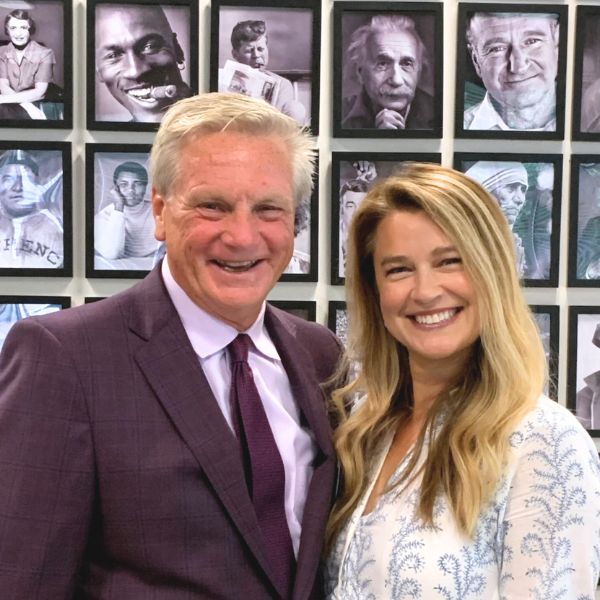
Joanne: Thank you for having me over today. I am admiring your wall of photos here. Can you tell me more about it?
Mayor Wilson: I am glad you’re here. It’s a pleasure to finally meet you. I’ve enjoyed your “Behind The Curtin” videos. These photos on the wall are all people that have had an impact on me.
Joanne: I think it’s great that you reflected on who to put up there. That’s awesome, because you don’t get where you’re going without learning from others. So, if you could have dinner any of these people, who would you invite?
Mayor Wilson: That’s a great question. I would probably be more contemporary oriented than historically oriented. I definitely would talk to Mother Theresa. Everything I read about her is authentic, honest, and courageous. She’s an incredible warrior who has this great courage most of wish we had and she’s challenging her faith all the time. And Johnny Carson, of course. My dad was Carson’s doppelganger, they looked like twins.
Joanne: Most of our clients are in the area we like to call “The Platinum Triangle”, that’s Roswell, Alpharetta, and Milton. I’m curious about what you think sets Roswell apart from Alpharetta and Milton?
Mayor Wilson: I love my sister cities, let’s start there. I routinely have the mayors of Alpharetta and Milton over to my home. I believe in personal engagement because we are all in this together. Roswell has been successful in part because it won the geographic lottery. It was once the crown jewel of North Fulton County. Now, I acknowledge that Alpharetta has grown and they have some advantages over us, take for example the number of exits off the 400. Whereas Milton has stuck to their vision of being made up of mostly single-family homes. And that works for them.
The city of Roswell is 42 square miles, that’s it. And 65% of that is made up of single- family homes. We’re looking at the other 35% that, until now, did not have a viable long term economic strategic narrative. How do we get ahead in terms of industry? We can’t chase manufacturing businesses that we don’t have the room for. And without an intentional strategy, someone else was going to make the strategy for us – the state, the federal government, Fulton county. When I came in to office it was clear to me that Roswell needed to be a city of 120,000 people in 20 years. We are currently at 96,000. That means the city of Roswell is going to be very intentional. In other words, the development community is not going to come to us. We’re going to do the placemaking for the development community. As I said, we have limited space, 42 square miles, and because we have limited space we have scarcity. So, we’re about to use that to our economic advantage. The city is already heavily invested in zero based budgeting. That means we’re really serious about how we spend our money and reimagining how each department works and what services to provide, from an entrepreneur perspective. We are looking at what we do well, and what we don’t do so well.
Joanne: Since you’ve been in office, what’s something you are most proud of?
Mayor Wilson: All credit goes to God and my team. I am proud to say we’ve gotten more done in 12 months that has been done in 20 years. We have the best in class police force focused on de-escalation, a full-time fire department, and passage of the $180 million dollar bond overwhelmingly approved by voters.
I am a big believer that we’re building our organization in a different way. I hope we are building a political legacy and leadership that will last beyond my term. The question we ask ourselves is “what’s the right thing to do for the city of Roswell?” I hope the legacy is an organization that is highly competent, highly effective.
Joanne: You talked about looking at things done well and things that need improving. Is there something in particular that you’re working on?
Mayor Wilson: Communication is the hardest thing for us. We’re a fairly static organization and it seems we’re always playing defense. The challenge is to reach people with consistent, authentic, and sophisticated messaging.
I really believe that leadership has responsibility, not just for governing, but for bringing rational discussion into the marketplace. The overwhelming majority of us want to have sober discussions with healthy skepticism. I hope we heal the acrimony that has overtaken our political debates.
Roswell is a great place to live, There’s an unbelievable quality of life here. And I want to people who live here to really know that, to enjoy it, and to celebrate it.
Joanne: We love Roswell. In 2017, Tom and I started a 501c3 non-profit, Curtin Team Cares. We are committed to helping local families and organizations where help is needed most. Currently we are actively working with the Children’s Development Academy of Roswell (CDA). Are there any other organizations in Roswell that you feel others should know about?
Mayor Wilson: I love our community and I love CDA with the leadership of Maggie DeCan. I believe in the mission of CDA [www.cdakids.org]. We have so many great charities that operate in Roswell. HomeStretch [www.homestretch.org], North Fulton Community Charities [www.nfcchelp.org] with Sandy Holiday at the helm, Sunny and Ranney [www.sunneyandranney.com], and can’t forget The Cottage School [www.cottageschool.org]. The Cottage School has a beautiful mission and has really helped save students and their families.
Joanne: Since we’re in the South, I’m sure you know that people are just as interested in where you are from as who you are for.
Mayor Wilson: You saved the toughest question for last. Well, I grew up in Huntsville, Alabama where half the town loves Alabama and the other half loves Auburn. I went to college at Ole Miss. And then I moved to Georgia and I’m still learning how to respond whenever someone says, “Go Dawgs!”. I love the Braves. So, I guess, I root for everyone. How’s that for a politician’s response?
Joanne: (laughs) Okay. That’s a fair answer. It’s been pleasure talking to you today. I am excited to hear about the new developments in Roswell that will soon be announced. We’ll have to meet up again so we can talk more about them.
Mayor Wilson: Thank you! It’s been a pleasure talking to you. Roswell is a remarkable place and I’m looking forward to its bright future.
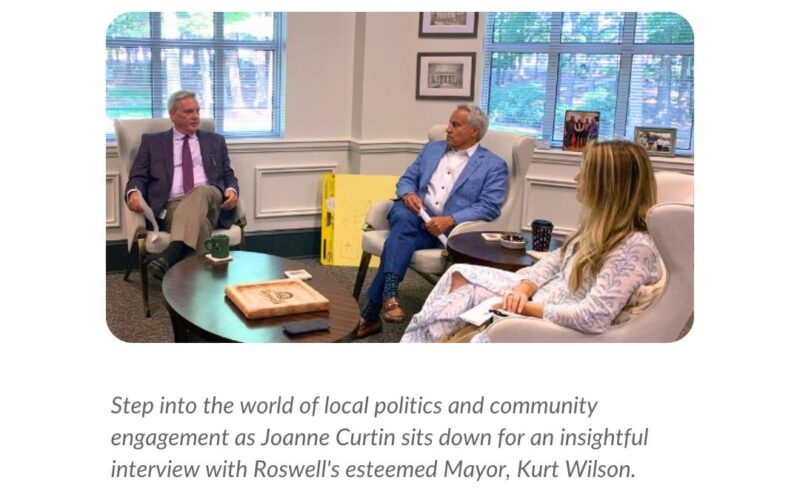
“Behind the Curtin” Presents Presents A Historic Home on Roswell’s Wood Place Episode 6
“Behind the Curtin” provides an inside look at local homeowners’ beautifully-crafted houses, giving insight into what it takes to renovate, upgrade, and style the most coveted parts of their dream homes. In this video series, industry expert and business owner Joanne Curtin explores local homes while interviewing their owners who live well in their homes to better understand their thought processes when making important decisions. Join Joanne to get a look into the world of luxurious real estate one wonderful home at a time.
“Behind the Curtin” Episode 6 – A Historic Home on Roswell’s Wood Place
WATCH THE FULL EPISODE HERE
Charlie and Sharon McCall live in historic downtown Roswell, Georgia. They have updated and renovated a nearly 100 year old home in historic downtown Roswell, Georgia.
Joanne: Where did you live before purchasing your house on Wood Place?
Charlie: We lived in Chicago. Before that, we were in Atlanta since 1982, coming from Salt Lake City due to a company transfer. Then in 1992, we were transferred to Chicago. After about two and a half years, we decided to move back and bought this house 31 years ago.
Joanne: How have you increased your property’s value over time? What renovations have you done?
Charlie: We remodeled the bathrooms, added a master bedroom suite, created a bonus room in the attic, and continuously landscaped the yard. We also added a pool and patio in the back.
Joanne: Did you use a designer for the renovations?
Charlie: We hired a contractor for the inside work like the bathrooms and kitchen. We also had a friend who is a builder help us with the design for the master bedroom area. He incorporated our preferences, like a walk-in shower, into the blueprint.
Joanne: Since the house is 100 years old, were there any restrictions or requirements for adding on?
Charlie: Our street opted out of being part of the historic district, so we don’t have building restrictions specific to that. However, we still need to adhere to the city of Roswell’s permit requirements.
Joanne: What does your home have that you really needed?
Charlie: The main thing we needed was more space, so adding a master bedroom was crucial. We also updated the bathrooms and kitchen for modernization rather than increasing square footage.
Joanne: Which room in the house is your favorite and why?
Charlie: I love the middle of the house where we spend most of our time. We added a sunroom to bring in more natural light since the older part of the house didn’t have many windows. The charm of the house really struck me in that central area.
Joanne: Are there three fireplaces now that come off that central area?
Charlie: Yes, there are three fireplaces in a triangle formation—one in the bedroom, one in the living room, and one in the den. They all work, and that’s one of the reasons I enjoy that part of the house. These three separate fireplaces share the same chimney. We had the chimney rebuilt with new brickwork and mortar, and added gas logs for easy use.
Joanne: Charlie, what’s your favorite part about the property?
Charlie: The den and sunroom are where we spend most of our time. We also love the spacious bedroom and the yard, especially when the weather is nice.
Joanne: It’s interesting how COVID made us appreciate what we value in a property, such as landscape and outdoor spaces.
Charlie: Absolutely, we have added decks and outdoor areas to make the most of our property.
Joanne: Did you have any favorite sources or places where you bought things for your house?
Charlie: We focus mainly on finding items that fit well in the smaller rooms of our house.
Joanne: After living here for 31 years, where do you like to shop for furniture and decor?
Charlie: We do a lot of online shopping and also visit Home Depot and Lowe’s. We also enjoy salvage stores and flea markets for unique finds.
Joanne: Are there any specific salvage stores or flea markets nearby that you frequent?
Charlie: There’s a place called Board of Trade [goboardoftrade.com] where we found our living room sofa and other items that fit well in our small rooms.
Joanne: Was there anything during your home renovations that you splurged on and couldn’t live without?
Charlie: The pool and the kitchen were definitely splurges. We didn’t necessarily need them, but we’re glad we have them now.
Joanne: What did you learn from the process of building the pool and outdoor kitchen?
Charlie: We love being able to enjoy the pool and cookouts outdoors.
Yeah, that’s a nice extra-large patio. And then there’s the outdoor fireplace out there. Gas Grill built in and gas cooktops and sink with hot and cold water.
Joanne: It’s all about being outside and enjoying the space, right?
Charlie: One thing we would do differently is to prioritize privacy in our outdoor area, especially around the kitchen. The neighboring house was torn down, and the new one overlooks our property, making it feel exposed. We added a fireplace to block the view of the pool, but we still plan to find a way to enhance privacy. Overall, we are happy with everything.
Joanne: Let’s discuss your impressive pool. What type of lining does it have? Is it lined with pebble tech? Is it a mineral or a saltwater pool?
Charlie: It’s actually a saltwater pool. The company that constructed it used to be located on Highway nine. The pool is made of concrete with steel walls and steel posts surrounding the edges. Concrete was poured on the floors and slides, and then they applied a hybrid membrane, which I believe is a combination of different materials.
Joanne: And could you please spell the name of the pool company for me?
Charlie: Is it spelled as DESJOYAUX. [www.desjoyaux.com]
Joanne: So now that you’ve completed your pool and everything, if money was not a concern, what would be your next project or improvement?
Charlie: We would focus on the floors. Currently, the floors are a bit challenging because the house is old and uneven. We actually laid tiles in the dining room and sunroom as one of our initial projects. However, due to the unevenness of the house, it’s difficult to lay flooring throughout consistently. We want to match the existing hardwood floors but aren’t sure if they can be laid or if we need to replace them entirely.
Joanne: I agree with you. It might be better to cover the existing tile with something rather than removing it completely. That seems to be the trend nowadays. After completing the pool and the outdoor kitchen area, is there anything you believe should not be compromised when making additions or improvements?
Charlie: Yes, I think getting a reliable contractor who will do more than just come in and install a product, but can also help with issues that older homes have.

Tom Curtin Talks with Ben and Candice Thornton About First Time Homebuyers
Tom Curtin, CEO of the Curtin Team, and Ben and Candice Thorton from Capital Mortgage Solutions, LLC, actively discuss cooperative buying and aiding first-time homebuyers. They dispel myths regarding down payments and explore alternative financing methods. It is revealed that a primary residence can be purchased with as little as a 5% down payment, and some loan programs mandate even less. Furthermore, they delve into the possibility of gift funds, which parents, friends, or close family members can offer. Conventional guidelines dictate that gift funds must originate from a direct family member or fiancé. 401k loans are also an option for individuals who lack a family member or employer to help with the down payment. Borrowing from a 401k to make a down payment on a home has no impact on the debt-to-income ratio.
Check out our previous blog post about the real cost of waiting to buy –
https://www.curtinteam.com/the-real-cost-of-waiting/
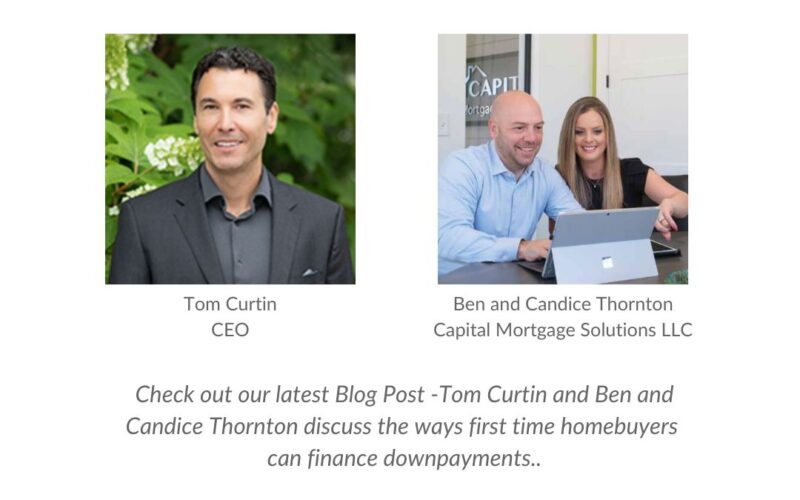
Tom and Joanne Curtin Discuss the History of the Curtin Team
Tom and Joanne Curtin discuss the history of the Curtin Team and how the lessons they learned have propelled them forward to build a successful real estate business in Roswell, Georgia. They discuss their success in real estate investments and outline steps they took to get there. They talk about how they committed fully to the decision to invest in real estate and emphasize taking action instead of waiting for the “perfect” opportunity.
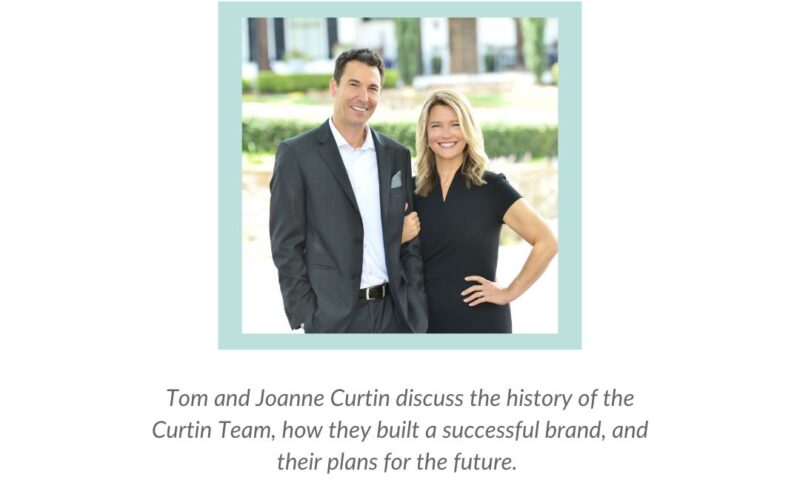
The Dangers of Pricing Your Home Too High
Selling a home is a big decision, and one of the most important aspects of the process is determining the right price. Unfortunately, some sellers make the mistake of pricing their homes too high, which can lead to a host of problems down the line. In this blog post, we’ll explore some of the reasons why people price their homes too high when they sell them, and the potential consequences of doing so.
1. Testing the Market
One of the most common reasons why people price their homes too high is because they want to “test the market.” In other words, they want to see if there are any buyers out there who are willing to pay more than what they think their home is worth. While this may seem like a logical strategy, it can backfire in a big way. Overpricing your home can make it less appealing to buyers who are looking in your price range, and it can also turn off potential buyers who might be willing to pay more for a home that is priced appropriately. For example, a home that is worth $600K and the list price was $600K, it would be more likely to get that amount. However, if you listed a home that was only worth $575K for $600K, price reductions might eventually lead to a sale price of only $540K.
2. Leaving Room for Negotiations
Another reason why people may overprice their homes is that they want to leave room for negotiations. They may assume that buyers will try to negotiate the price down, so they start with a higher price in order to end up at the price they really want. However, this strategy can also be counterproductive. If your home is significantly overpriced, buyers may not even bother making an offer, or they may assume that you’re not serious about selling.
3. Believing a Higher List Price Will Result in a Higher Sale Price
Some sellers mistakenly believe that if they list their home at a higher price, they will end up selling it for more money. However, this is not necessarily the case. Buyers are savvy, and they will typically do their research to determine what a home is really worth. If your home is priced much higher than other similar homes in the area, buyers may simply choose to look elsewhere.
4. Misinformed About the Market
Finally, some sellers may overprice their homes because they are misinformed about the market. They may have received bad advice from a friend, neighbor, or another realtor who is not familiar with the local market conditions. It’s important to work with a realtor who has experience selling homes in your area and who can provide you with accurate information about pricing and market trends.
So, what are the consequences of overpricing your home? The most obvious consequence is that your home may sit on the market for longer than it should. This can lead to a variety of problems, including:
• Reduced interest from buyers
• Fewer showings
• Lowball offers
• A lower eventual sales price
In addition, if your home sits on the market for too long, it can start to develop a stigma. Buyers may assume that there is something wrong with the home, or they may wonder why it hasn’t sold yet. This can make it even more difficult to sell the home in the future.
In conclusion, pricing your home appropriately is crucial if you want to sell it quickly and for a fair price. While it may be tempting to overprice your home for any of the reasons mentioned above, it’s important to resist the urge and work with a realtor who can provide you with accurate information about pricing and market conditions. By doing so, you can avoid the pitfalls of overpricing and increase your chances of a successful sale.


